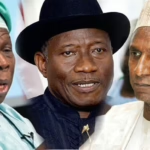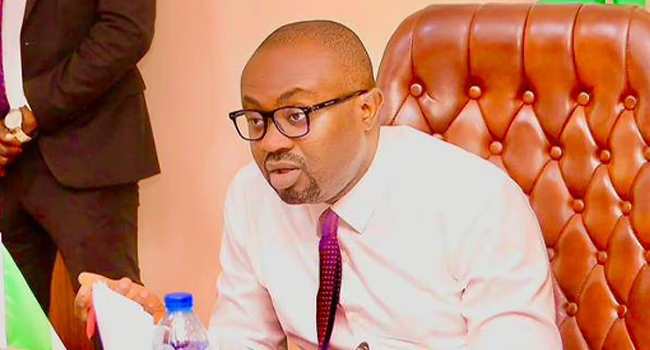Interior Minister Justifies Passport Fee Increase as Part of Anti-Corruption and Security Reforms
Dr. Olubunmi Tunji-Ojo, Nigeria’s Minister of Interior, has robustly defended the recent rise in passport application fees, framing it as a necessary step within a comprehensive reform strategy designed to eradicate corruption, bolster national security, and restore the Nigerian passport’s credibility on the international stage.
Streamlining Passport Processing Through Centralization
Addressing attendees at the ministry’s mid-term performance retreat in Abuja, Tunji-Ojo announced the launch of a centralized personalization center. This facility aims to accelerate passport issuance by minimizing human intervention and eliminating procedural delays that have historically plagued the system.
“Passport Control Officers (PCOs) will no longer hold discretionary power to approve or delay passport applications,” the minister emphasized. “This move is critical to dismantling entrenched corruption networks that have long compromised the integrity of the process.”
He elaborated that some PCOs previously wielded excessive influence, often withholding passport approvals until bribes were paid-a practice that the government is determined to end.
Commitment to Efficiency and Transparency
Minister Tunji-Ojo assured Nigerians that passport applications will now be processed within a maximum of seven days following successful submission. This pledge underscores the government’s dedication to transparency, accountability, and improved public service delivery.
Highlighting the dangers of a compromised system, he recounted a recent case where a Ugandan national was apprehended at Lagos Airport with a Nigerian passport obtained through a $1,000 bribe. “Such incidents undermine the passport’s role as a genuine emblem of Nigerian citizenship and must be eradicated,” he stated.
New Passport Fees and Their Rationale
Effective September 1, 2025, the Nigeria Immigration Service (NIS) announced that passport fees within Nigeria will increase to ₦100,000 for the standard 32-page passport valid for five years, and ₦200,000 for the 64-page passport valid for ten years. This update was communicated by ACI AS Akinlabi, the NIS Public Relations Officer.
Notably, fees for Nigerians residing abroad remain unchanged at $150 for the 32-page and $230 for the 64-page passports.
According to the minister, this adjustment is a strategic investment aimed at creating a sustainable, corruption-free system. “This is not a mere price hike; it represents a commitment to elevating service standards and eliminating fraud and delays,” Tunji-Ojo explained.
Public Backlash: Passport Costs Now Surpass Average Monthly Earnings
Peter Obi, former Labour Party presidential candidate, has criticized the government’s decision to double passport fees, labeling it as insensitive to the financial hardships faced by ordinary Nigerians.
In a statement posted on X (formerly Twitter), Obi lamented the administration’s persistent tendency to impose additional burdens on citizens rather than alleviating their struggles. “The government’s fixation on increasing costs is out of touch with the realities of everyday Nigerians,” he said.
Obi further highlighted the alarming fact that the new passport fees exceed the average monthly income of many Nigerian workers, raising serious concerns about accessibility.
Voices from Civil Society and Legal Experts
Social commentator Alex Adagi used satire to critique the fee increase: “They claim the passport is now more secure, but what good is security when people can’t afford basic necessities? Nigerians are effectively priced out of their own citizenship.”
Human rights lawyer Barrister Alobo Edu condemned the fee hike as “arbitrary and unconstitutional,” urging the government to reconsider. “Charging exorbitant fees for essential identity documents infringes on citizens’ rights to mobility and identity,” he argued.
Contextualizing the Economic Impact
With Nigeria’s inflation rate hovering around 22% as of early 2024 and the average monthly wage for many workers below ₦90,000, the passport fee increase poses significant affordability challenges. Experts warn that such policies risk deepening social inequality and limiting access to international opportunities for a large segment of the population.
As the government pushes forward with reforms, balancing security imperatives with economic realities remains a critical challenge.


















0 Comments